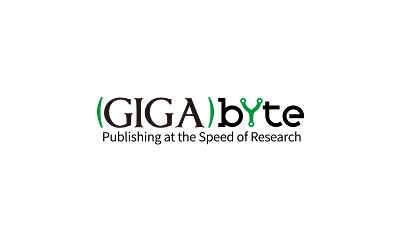This year, the judges have selected a shortlist of seven for the ALPSP Awards for Innovation in Publishing. Each finalist will be invited to showcase their innovation to industry peers on 14 September on the opening day of the ALPSP 2022 Conference in Manchester. The winners will be announced at the Awards Dinner on Thursday 15 September.
In this series, we learn more about each of the finalists.
Tell us about your organization
GigaScience Press is an Open Access Publisher, based in Hong Kong, that publishes journal articles and accompanying datasets and software. It is a division of BGI Research, a non-profit research institute that is part of the genomics organisation BGI-Group.
What is the project/product that you submitted for the Awards?
GigaByte is a new journal and data publishing platform that rapidly and cost-effectively shares research in a manner that makes the scientific process more inclusive and accessible to the broader community. GigaByte uses an exclusively XML-based publishing system that automates the production process and makes it effortless to change views, languages and embed interactive content. The journal breaks down many of the remaining access barriers in research, which helps to address the UNESCO Open Science Recommendations.
Tell us a little about how it works and the team behind it
GigaByte was developed by the GigaScience Press team with the goal of speeding up the publishing process, reducing cost, and changing the way scientific research could be more broadly accessed and used within the publishing process. GigaScience Press partnered with River Valley Technologies to build a new end-to-end XML-first publishing platform that would make these goals a reality. The journal editorial team are employed by BGI and are primarily based in Hong Kong and mainland China, alongside a team of professional data scientists and curators in the UK who work with authors to assist them in curating their data and preparing dynamic content. The combination of the GigaScience Press, with their extensive knowledge of scientific publishing and areas needing change, and River Valley Technologies, with their novel technological publishing solutions, enabled the production of a new platform that changes the current slow and limited scientific publishing methods, and created not only a unique new journal, but also a partnership that works synergistically to develop new and better ways to provide, present, and use research.
The outputs from GigaByte’s novel publishing workflow transforms the research article from a stagnant narrative describing what the researchers have done, to something that can be utilised by a much wider audience, including formerly inaccessible elements that underlie the narrative. The journal dramatically increases interactivity of content through embedded data visualization tools (for NMR spectra, 3D models, genomic maps and more), browsable maps, and video summaries, all of which, beyond usability, improves trust in the scientific findings. More, the journal crucially improves accessibility to authors and readers around the world by enabling the articles to be shared in a bilingual format (with examples published in Chinese, Spanish and Portuguese, alongside the English language version-of-record), and linking them to regional preprint servers such as AfricaXiv and SciELO Preprints. The journal is also beginning the process of tackling the cost-barrier of Open-Access, due to its primarily automated production process, where, upon acceptance, the publishing platform converts manuscripts to online- and PDF-ready articles within hours with minimal human intervention. This dramatically reduces both production time and cost, providing an equitable solution to publishing open science.
Leveraging the cost savings of this platform, we’ve published a series of papers crediting the outputs of a public college student project on an agricultural pathogen that has decimated their communities, and a series of articles sponsored by the WHO, that shares extremely important public health datasets from across the world. Working directly with the funders and consortia who handle these important public interest projects is a more cost-effective and equitable way to disseminate their research outputs openly. Having completed this type of journal-to-consortia and funder process for scientific publication, we are in the stages of formalising this process and engaging with organizations to expand these efforts further. Beyond creating article series, GigaScience Press is in the development stage for launching new journals using this approach and publishing platform, and for offering a cost-effective and interactive solution for other journals that want to use our expertise to improve their own publication workflows in a similarly Open Science friendly manner.
About the author
Scott Edmunds is the Hong Kong based Chief Editor for GigaByte Journal. With over 15 years experience in Open Access and Open Data publishing he is co-founder of CivicSight (formerly Open Data Hong Kong) and CitizenScience.Asia, and is Vice Chair of the Board of Directors of the Dryad Digital Repository.
Relevant web links
https://www.linkedin.com/company/gigascience/
https://www.facebook.com/GigaByteJournal






No comments:
Post a Comment